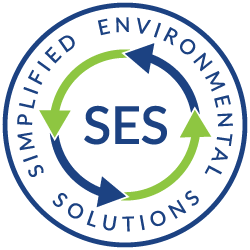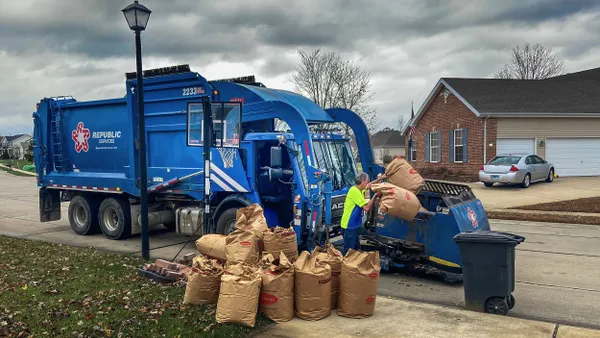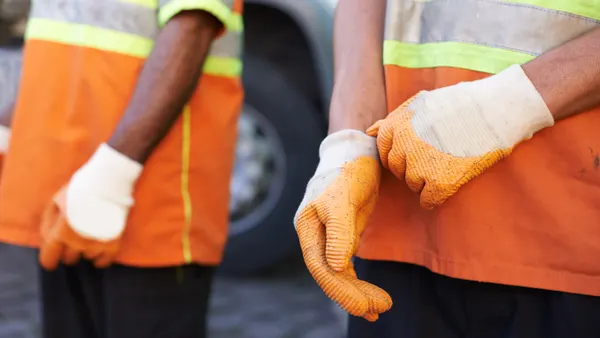Dive Brief:
- Upscale coffee chain Blue Bottle announced this week it plans to achieve "zero waste" by the end of 2020, diverting roughly 90% of waste from landfills from nearly 70 locations around the country. In a blog post, CEO Bryan Meehan wrote "we’re part of the problem" and committed the company to eliminating usage of disposables.
- Blue Bottle already relies on compostable bioplastics in lieu of traditional to-go cups. Per Meehan, the company goes through around 15,000 single-use sugarcane paper cups per month in the United States, many of which still wind up in landfills despite their compostability.
- A spokesperson for Blue Bottle told Waste Dive the company is unsure of which areas might be next for the pilot program following an initial effort planned in the San Francisco Bay Area. Under the new plan, customers will either need to bring their own to-go cups or put down deposits on reusable alternatives. Whole bean coffee will also be sold in bulk rather than single-use bags.
Dive Insight:
Blue Bottle's initial pivot to compostables and new moves towards further waste reduction reflects growing trends as companies acknowledge consumer demands. Meehan said the new decision was ultimately motivated by concerns about climate change and cues from Nestlé, which acquired a 68% stake in Blue Bottle two years ago. Nestlé has pledged to make all its packaging reusable or recyclable by 2025, in addition to going carbon neutral by 2050.
Last March, Starbucks announced a trial for recyclable and compostable cups, along with pledging a phase-out of all plastic straws from its stores by 2020. Dunkin' has meanwhile been in the process of fully abandoning polystyrene foam cups by April 2020 as the company moves to a fiber and plastic-based alternative.
But Blue Bottle's change marks a potentially more dramatic trend. Compostables — including bioplastics — are becoming a popular alternative to plastics, which increasingly face regulations amid public outcry over marine debris and other litter. However, for a variety of reasons, compostables can still wind up in landfills where they produce methane.
Some compostables also contain non-stick per- and polyfluoroalkyl substances (PFAS) which do not break down in the environment. Some of those chemicals have been linked to cancer and the U.S. EPA is under pressure to regulate PFAS, with potential implications for products containing them.
Those drawbacks may lead companies to consider "zero waste" programs like the kind under consideration by Blue Bottle. Such efforts may also be motivated by legislation. Washington, D.C., for example, is considering a major bill that would require restaurants to provide reusable serviceware in addition to sorting and processing organics. Berkeley, California went even farther earlier this year, establishing a fee for disposable cups.
Still, some argue a better solution would be to improve organics diversion and processing capacity. Rhodes Yepsen, executive director for the Biodegradable Products Institute, told Waste Dive that lack of access to composts for businesses and households is the "biggest barrier" to ensuring compostables don't wind up getting disposed in landfills or incinerators.
"One of the fundamental problems is that our society is looking at this as a product-based solution, rather than a system-based solution, because that’s the easy and quick answer," Yepsen said. "Just buying a different cup is not enough."
He went on to note that compostable cups can be collected along with food scraps and achieving widespread diversion will require reducing food waste. "We also need to figure out how to make reusable items more of the norm, which is going to take a cultural shift, noting that it's only sustainable if they are actually reused and that reusables aren't an option in all cases," Yepsen said.
But Conrad MacKerron, senior vice president for corporate accountability organization As You Sow, commended Blue Bottle's actions. MacKerron told Waste Dive that while the pivot will likely be challenging, the attempt sets a critical example.
"We need other coffee chains to step up and follow Blue Bottle’s lead and develop pilot programs and trials of single-use cup phase out in selected markets to gather data and gauge consumer acceptance," he said.
For his part, Blue Bottle CEO Meehan acknowledged in the blog post that his company's new effort "will wreak havoc on every aspect of our pilot cafe’s operations" and acknowledged it could cost some business. But, he said, "the time has come to step up and do difficult things. It’s our responsibility to the next generation to change our behavior."











